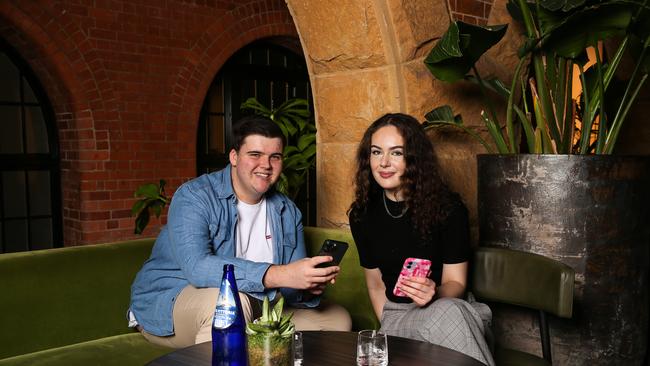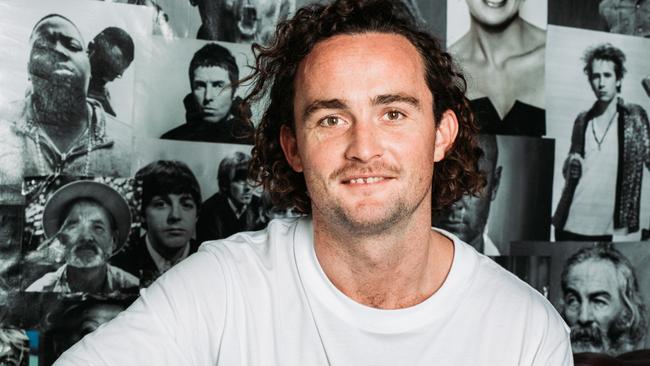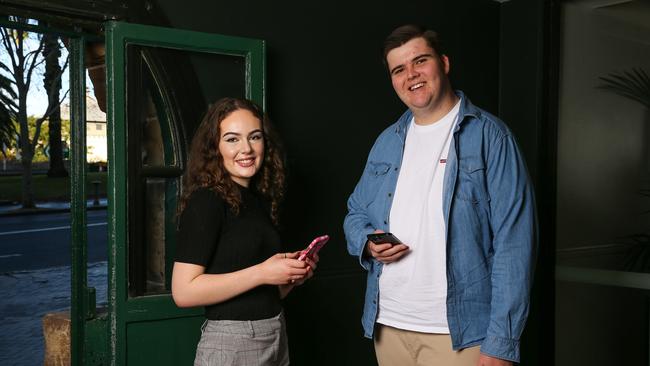Inside Gen Z’s bizarre phone phobia habit as its cause is revealed
The apparent inability for Generation Z to complete one old school phone action has become a growing frustration for countless parents. See what’s causing the chaos and how to fix it.
Parenting
Don't miss out on the headlines from Parenting. Followed categories will be added to My News.
It’s a growing frustration for millions of Australians: Why won’t Gen Z answer their bloody phones?
For Gen Z – those under 24 years old who have grown up texting or messaging via social media apps – making or answering calls is not only foreign, it can be scary.
In some cases they’re developing phone anxiety.
The no-answer phenomenon is also having a big effect on the country, with pollsters struggling to get a proper sense of national sentiment and businesses forced to change the way they communicate.

In an exclusive survey by post-school support group Year13, it found one in five 15 to 24-year-olds avoided calls except when absolutely necessary.
While nearly all were comfortable speaking on the phone to their parents, seven in 10 reported not picking up calls from unknown numbers, citing anxiety and a lack of confidence speaking to strangers.
Nearly half said they stumbled over words on a call, more than one in 10 reported shaking and more than a third experienced an increased heart rate.
Year13 co-founder Saxon Phipps said the death of the home phone has meant young people hardly speak to strangers on the phone growing up.
“Some told us how they need to hype themselves up before they call customer support or to make an appointment and there are some who will just get others in their family to make the call for them as they can’t face ordering food over the phone,” Mr Phipps said.
“The good news is that many young people told us how they got over their phone anxiety when they got jobs which needed them to be on the phone talking with strangers, but not all get this opportunity so for many it’s something they continue to suffer from.”
The latest available national telecommunications figures show that a third of Australians have a mobile phone and a landline, but more than eight in 10 aged 25 to 34 years are mobile-only for voice calls compared with those of those aged 75 and over (27 per cent).
For Social Plus Support Work CEO Michael Thompson the no-answer phenomenon is a problem.

He employs around 150 staff in Victoria, of which around 75 per cent fall into the Gen Z category.
He’s having to train and produce basic scripts to help younger staff make a phone call.
“It starts even before they get the job,” Mr Thompson, 28, said.
“We try and call them for an interview, but they won’t answer their phones to unknown callers. So we call, text and then they call back.
“All of that takes 10 times longer.”
He said for Gen Z concerns around making or answering calls is a “fear of failure”.
“You can see them gaining confidence as they get better on the phone,” Mr Thompson said. “It’s about repetition and backing themselves.”
He said as a young Millennial he was surprised at the difference a generation makes.
Clinical psychologist Corrie Ackland from the Sydney Phobia Clinic said she is helping an increasing number of younger people who have anxiety around answering phone calls.
She said they worry about what questions will come up and how to answer them.
“They struggle to answer on the fly,” Ms Ackland said.
“They don’t want to be asked a question, they want to have time to organise a response and answer it perfectly.
“It’s about having control, as well as control over where the conversation is going.”
She said the lack of practice means some people are struggling to have normal, flowing conversations face-to-face.
Ms Ackland said people with phone anxiety should practise their skills by asking a friend to phone at random times and to set a goal of making one phone call a day.
She said they should also call to order a takeaway, rather than use Uber Eats.

The Year13 survey found three in 10 said the anxiety they get when they make or answer a call negatively impacts their life and more than six in ten said they wanted to improve their phone skills.
But the trend of not picking up for unknown callers is also growing among older generations who are fed up or fearful of scams.
Telstra revealed this week that its ‘snitch on scammers’ national reporting number 7226 (SCAM) launched in May has received almost 50,000 tip offs.
It said SMS remains the most common way a scam will reach Aussies and tools like 7226 play a critical role in helping our experts to identify and block scams from reaching even more people.
But it’s leading to people of all ages to reject unknown callers, which means it can be tricky for pollsters.
One revealed robo polling has gone over a cliff in the past couple of months for under 50s, making it more difficult than in the past to collect a representative sample.
“Robo-polling has lost a lot of effectiveness, particularly in that 18 to 50 age segment where more respondents are screening their calls, making them hard to reach,” Tony Barry, director at Redbridge group, said.
GEN Z FRIENDS’ OPPOSING PHONE VIEWS
Gen Z-er Patrick Blacker is the generational exception.
Unlike his peers, Patrick, 20, loves talking on the phone.
His friend Aaliyah Johnston, also 20, not so much – although she is forced to for her sales job.
“I love chatting to people on the phone, but most of my friends don’t,” Patrick, who is a Gen Z brands marketing expert, said.
“If they don’t know the number they won’t pick up. It’s about trust. They know if someone really wants to get hold of them they will text or email.”
He said his generation has grown up with DMs (direct messages) so if they don’t have to talk, they won’t.
“Gen Z are Zoomers, so why meet in person when you can video call? Why call about tonight’s plans when you can text?” Patrick said.
His mate Aaliyah makes calls for work, but like everyone in her age group, she prefers to text.

Aaliyah has certain friends that never like to be called and so she always messages them out of respect. She has noticed their verbal skills are not so good.
“It’s definitely a lot harder to make conversation with those who avoid verbal or face-to-face interactions,” Aaliyah said.
“Having to make calls for work has increased my comfort levels, but I do get a bit anxious answering sometimes.”
Patrick, whose business Blacker Media works with brands as well as government, said organisations really need to catch up with Gen Z and make communication channels more accessible for all.
“Gen Z is portrayed in a negative light. I don’t think that’s fair,” Patrick said. “They are helping push the evolution of communication and that should be seen as a positive.
“Gen Z is driving future change. More live chats with brands and services will make interaction more accessible for younger generations, as well as those with a disability.
“Ultimately it’s about democratising communication.”





